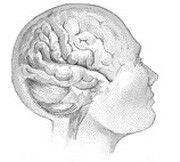Article
Does Parkinson's Disease Originate in the Gut?
Author(s):
The study authors noted previous articles that demonstrated the link between Parkinson’s disease in defective mitochondria, but were unsure how this mechanism took effect.

The gut might be the genesis of Parkinson’s disease and may hold the key to preventing the disease’s progression, according to findings published in Cell Reports.
Researchers from the University of Iowa used roundworms exposed to rotenone in order to show that the poison would damage mitochondria in the cell. The study authors also noted that previously published articles have demonstrated the link between Parkinson’s disease in defective mitochondria, but were unsure how this mechanism took effect.
"We think somehow the gut is protecting neurons," study author, Veena Prahlad, PhD, explained in a press release. "That seemed intriguing, and we wondered whether there was some innate mechanism to protect the animal from the rotenone.”
Rotenone started to damage the mitochondria in the roundworms’ neurons; however, the researchers observed, the rotenone did not kill off all of the worms’ dopamine producing neurons. The investigators said in the statement that across their trials, only about 7% (210 out of 3,000) of the worms lost dopamine producing neurons when they were treated with the poison.
The mechanism behind these findings, as the researchers mentioned they were on the hunt for, was activated once the rotenone was administered to the worms. When the poison was introduced, the worms’ immune system got rid of the infected mitochondria, which did not lead to the loss of the dopamine producing neurons. The researchers highlighted that this process from the immune system stemmed from the intestine, notably, not the nervous system.
"If we can understand how this is done in the roundworm, we can understand how this may happen in mammals," Prahlad continued.
In the future, the study authors plan to continue their research, including testing the hypothesis that the immune cells are “constantly surveilling the mitochondria for defects,” as Prahlad put it.
Possibly, Prahlad said, the immune system may constantly monitor the mitochondria because they are untrustworthy — many theories on mitochondria indicate that they were independent bacteria before being incorporated into the cell as a whole in animals, plants, and fungi to produce energy.
"How it's happening is suggestive of the possibility that the innate immune response is constantly checking its mitochondria, perhaps because of the bacterial origin of the mitochondria,” Prahlad concluded.
Related Coverage:
Computerized Spoon That Benefits Parkinson's Disease Patients Can Also Help Neurologists
Multiple Sclerosis Drug Could Be Effective Target for Parkinson's Disease Treatment
Providing Help in Neurosurgery at Home and Looking to the Future





